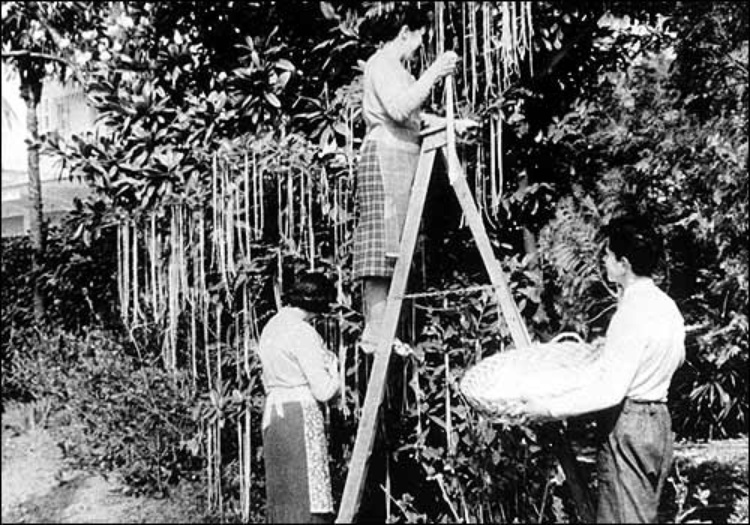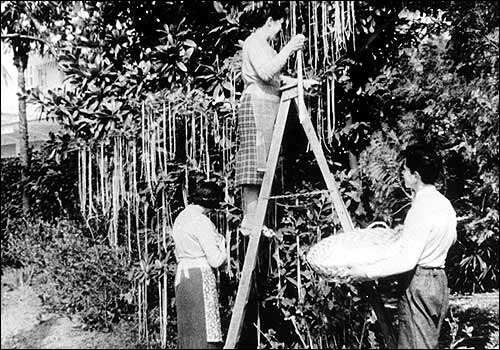April Fools’ Day is known as pesce d’aprile, or “April’s Fish” in Italy, and involves more or less the same customs as the Australian version, where jokes are made at others’ expense – all in good spirits, of course.
The peculiar name of this Italian festivity is inspired by the most historically common prank played on the day.
Traditionally, school children would stick a paper cut-out of a fish, or pesciolino, to the back of a peer.
The conversation would then go as follows:
- “L'hai visto?” (Have you seen him?)
- “Chi?” (Who?)
- “Il pesce d’aprile!” (The April fish/fool!)
Evidently, the poverino who is unknowingly sporting a fish on their back becomes the April fool.
Though it is an age-old tradition dating back decades, children across the Belpease still continue this jovial practice today.
April Fools’ Day is said to have originated in the 14th century, when Pope Gregory XIII decided to replace the old Julian calendar with his Gregorian calendar in 1582.
This monumental change meant that New Year’s Day would be celebrated on January 1, instead of at the end of March as had previously been customary.
It is believed that some people either weren’t informed about this adjustment or refuted it, and were made fun of in return, hence becoming “April fools”.
In Italy, the day is said to have first been popularised in the late 19th century by aristocrats and wealthy families.
The tradition soon spread to the entire nation and all sectors of society now enjoy taking part in the pranks.
Even one of the world’s most reliable industries, the media, can’t be trusted on April 1.
In 1957, the BBC news program Panorama broadcast a short segment which showed farmers from Ticino picking freshly grown spaghetti from trees, in what was dubbed the “Swiss Spaghetti Harvest”.
Funnily enough, the company was inundated with phone calls from people wanting to know how they could grow their own spaghetti trees.
One of the most famous pranks in history, the “Swiss Spaghetti Harvest” is also said to be the first occasion in which the medium of television was used to execute an April Fools’ Day hoax.
A few years later, Milan’s afternoon newspaper La Notte reported that local authorities had passed a new law making it mandatory for horses to be equipped with indicators and brake lights while being ridden through the streets.
Many locals bought into the prank and took their horses to a mechanic to have them fitted with the necessary lights.
The media still enjoys playing pranks on the public on April Fools’ Day and last year, in the tense lead up to Brexit, The Guardian reported that the royal family was set to make a “dramatic intervention” and publicly support Britain remaining in the EU.
It appears that nobody, not even the Queen, is safe on April 1.
We leave you with some final words of wisdom for when you wake up tomorrow morning: take everything with a grain of salt and watch your backs at all times, or the pesciolino may land on you!












